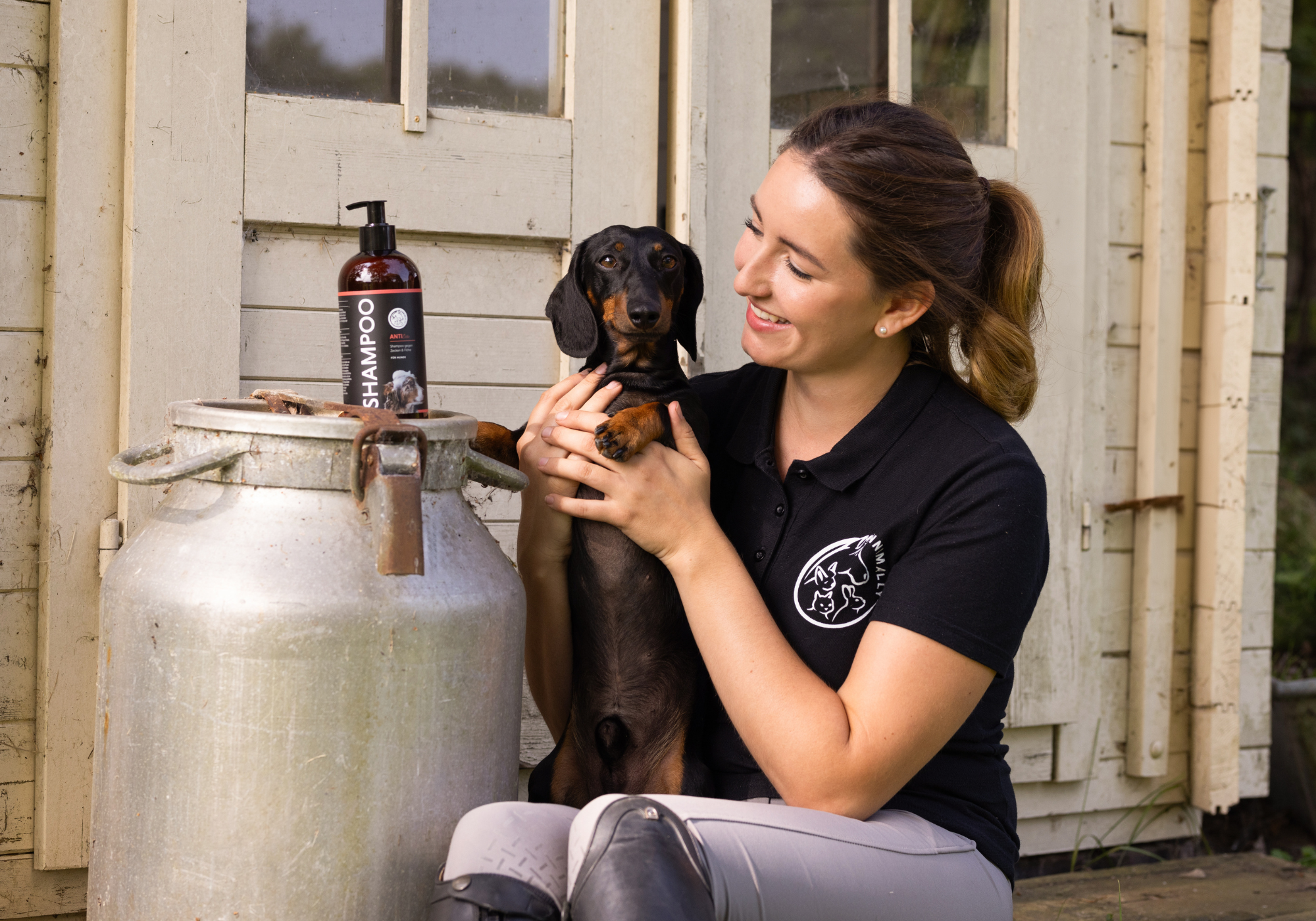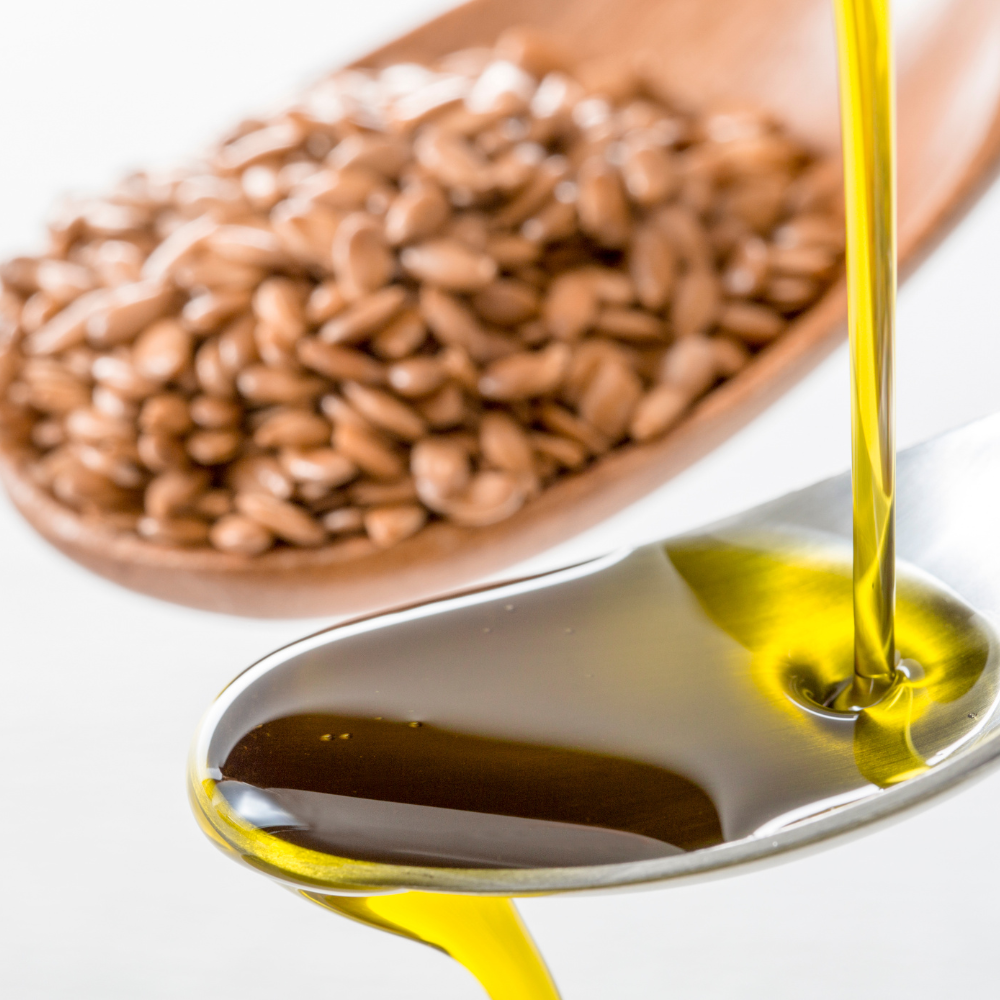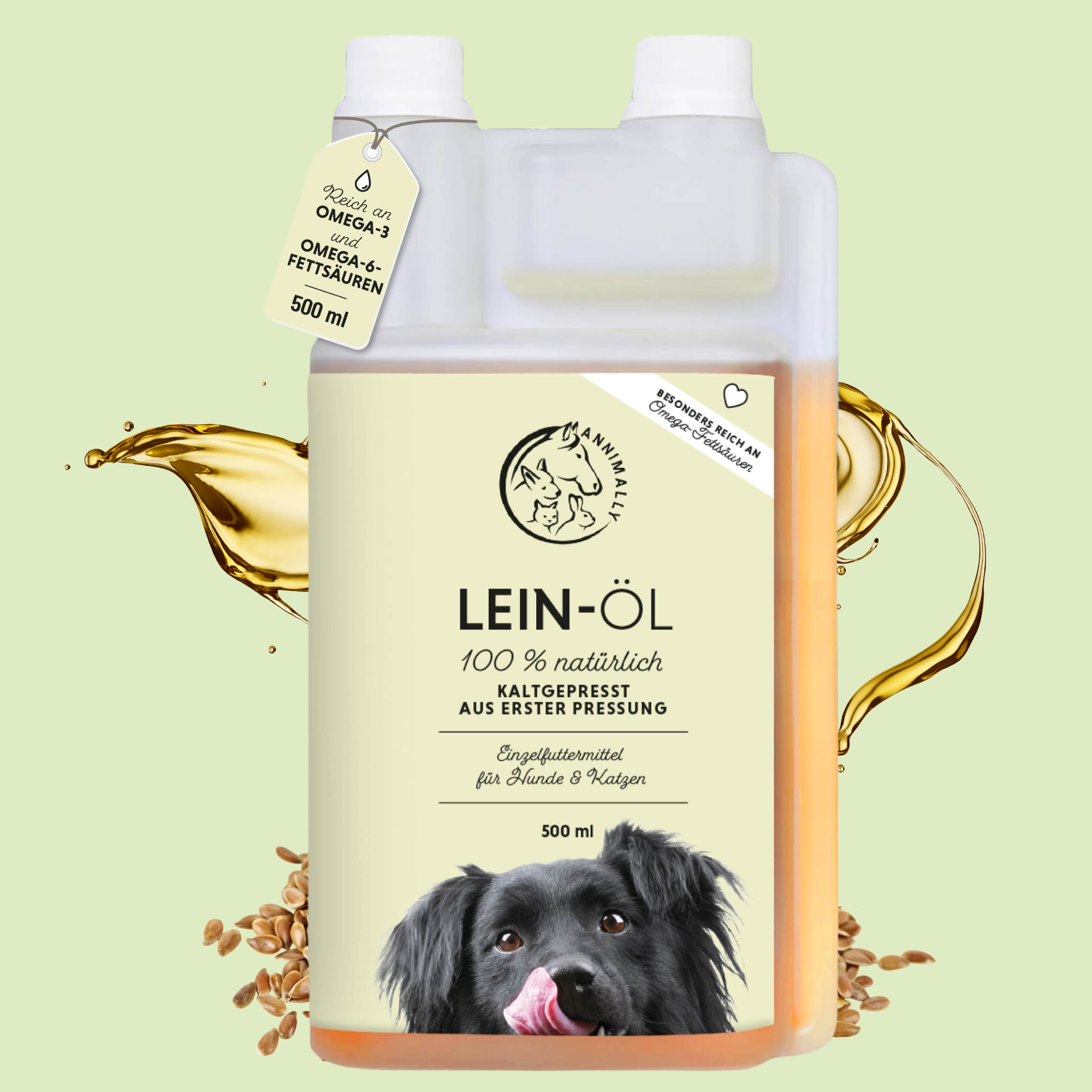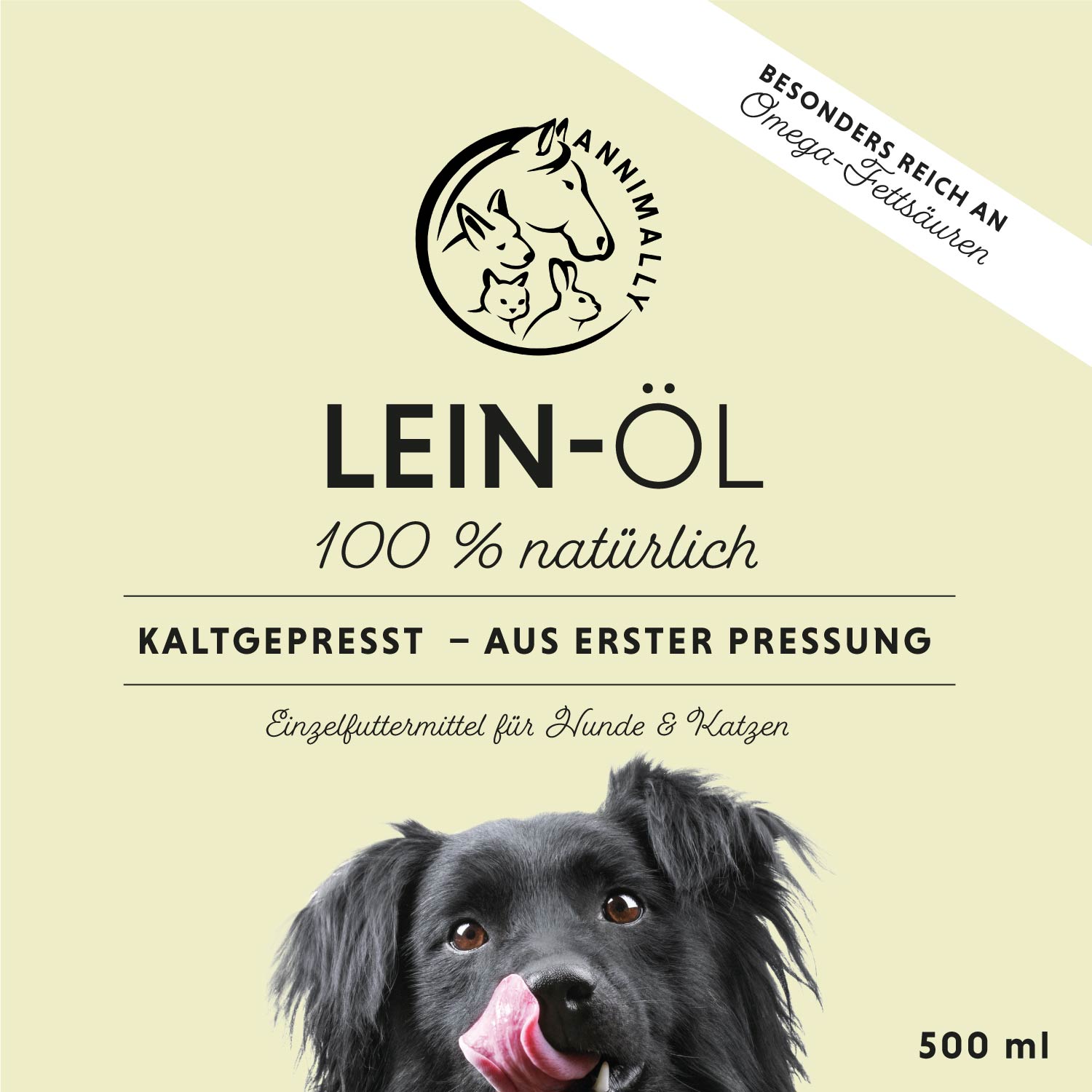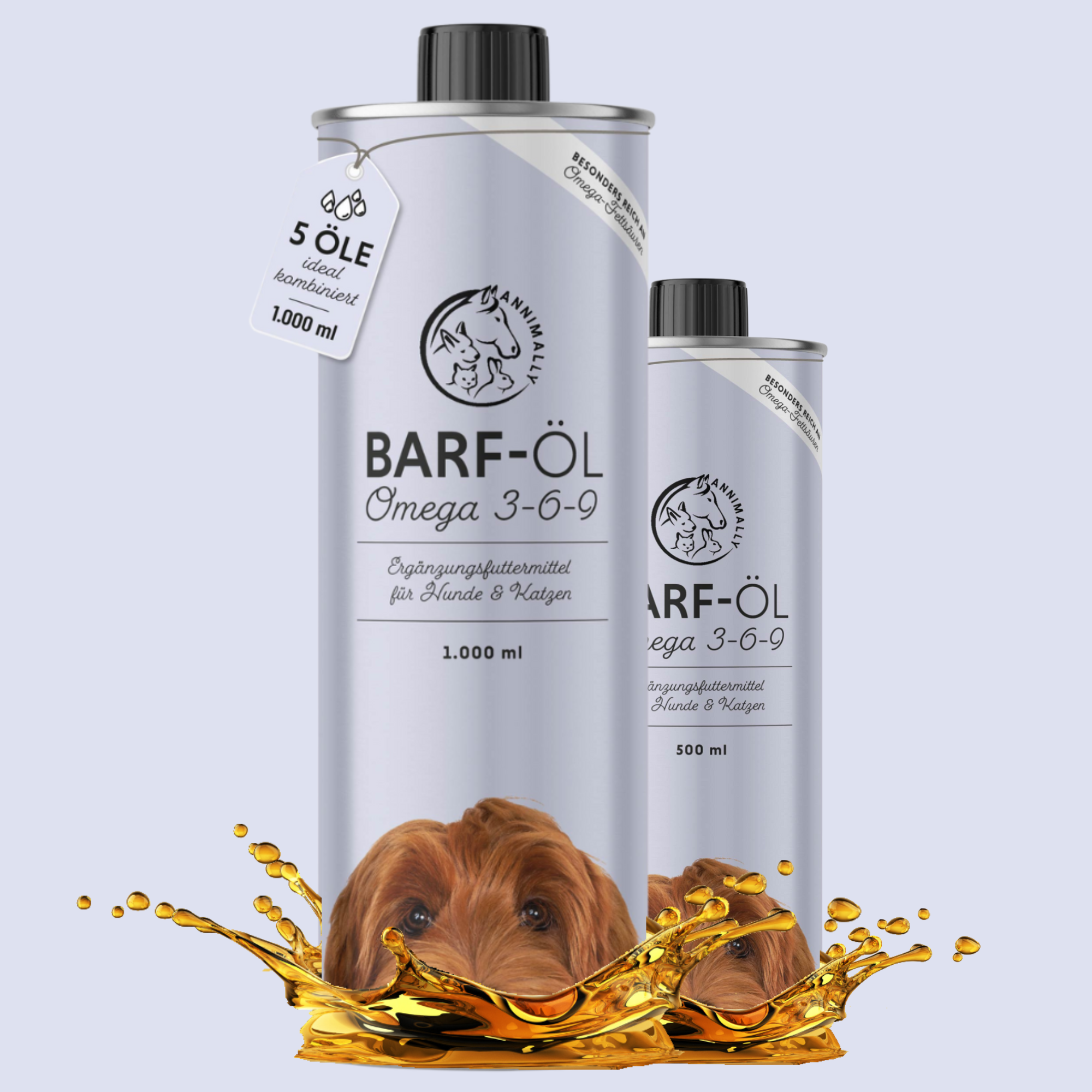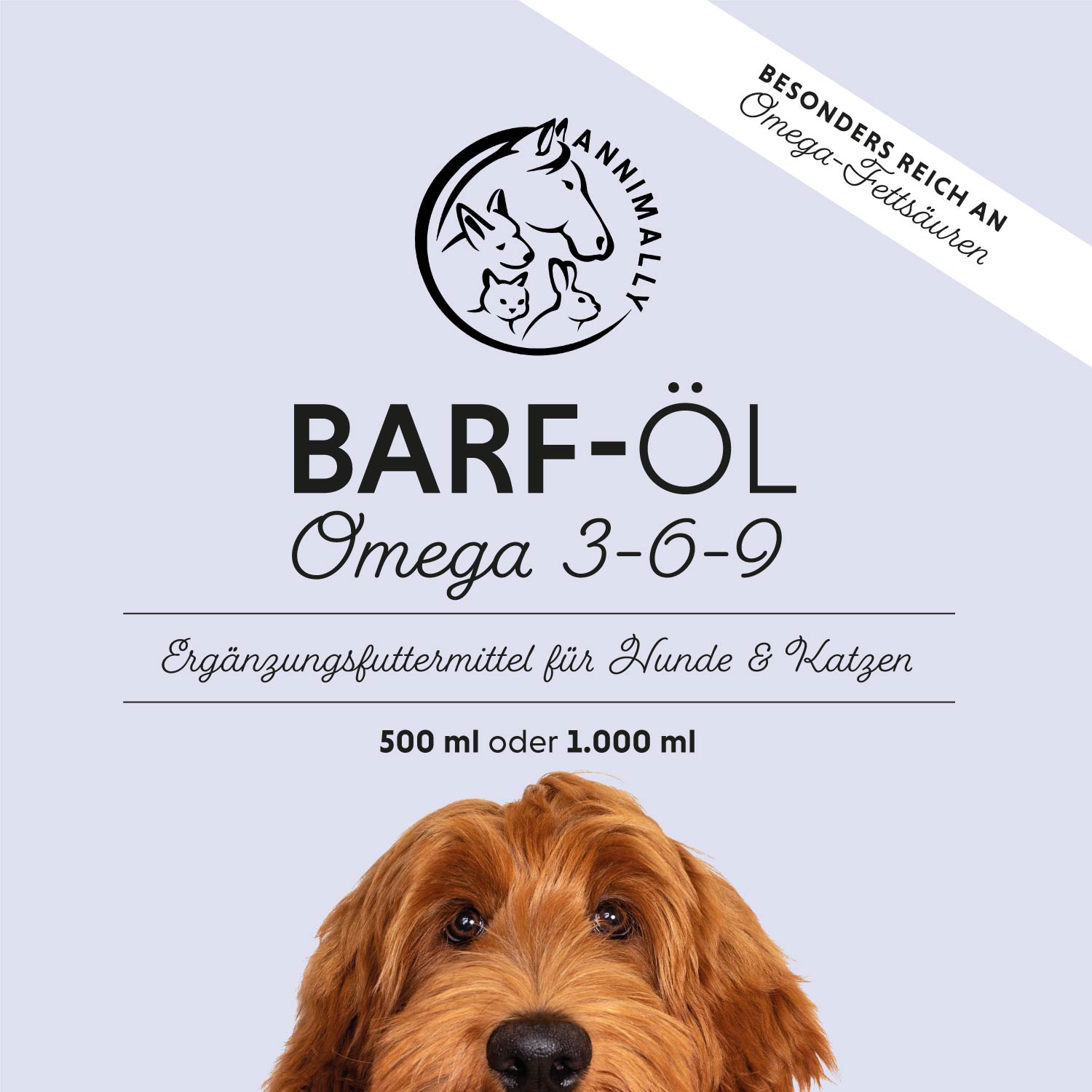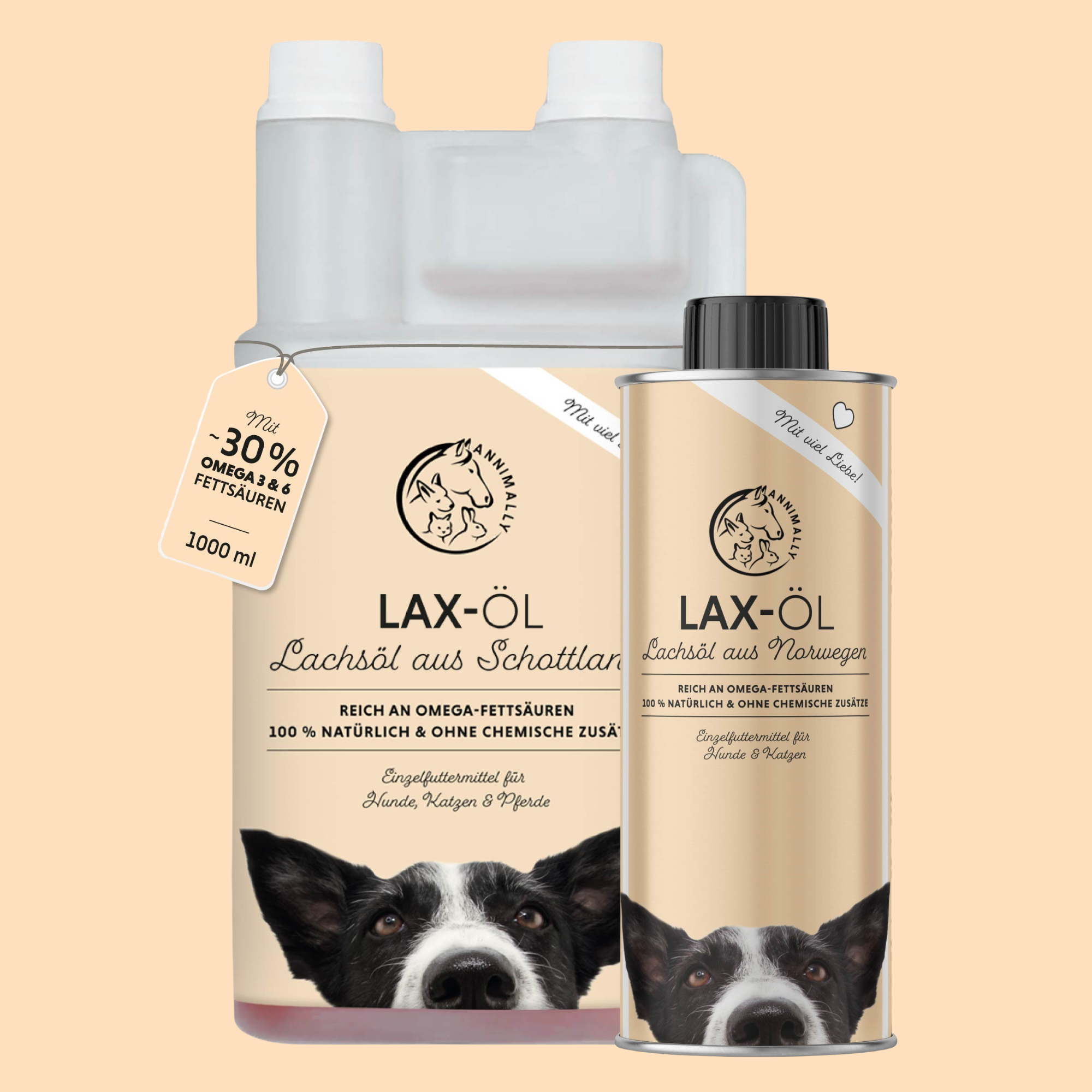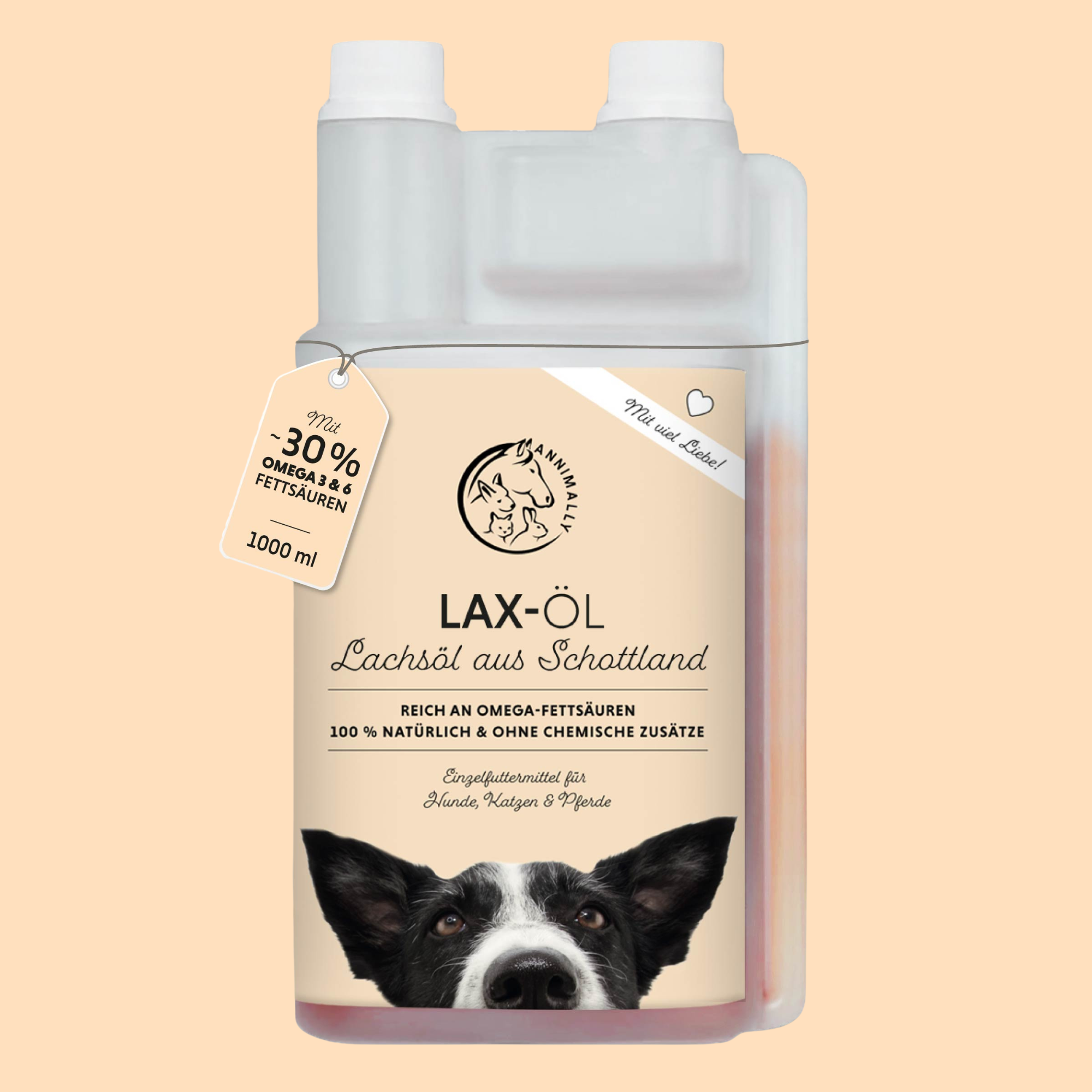Linseed oil for dogs: Natural health for skin, coat and vitality
Why linseed oil is a valuable supplement for dogs
Linseed oil is a true miracle cure when it comes to your dog's nutrition and health. It is rich in essential omega-3 fatty acids, which are vital for many bodily functions. Due to its high content of alpha-linolenic acid (ALA), a particularly valuable omega-3 fatty acid, linseed oil can help support your dog's skin and coat, cardiovascular system, joints, and metabolism.
But it's not just dogs who benefit from these valuable ingredients – cats and other animals can also receive linseed oil as a natural food supplement. In this article, you'll learn why linseed oil is so valuable for dogs, what its effects are, how to dose it correctly, and what to look for when buying it.

What is linseed oil? – A valuable oil with a long tradition
Linseed oil is extracted from the seeds of the flax plant (Linum usitatissimum) and is one of the most valuable vegetable oils. It is particularly known for its high content of omega-3 fatty acids, which play an essential role in the diet of humans and dogs.
The oil is extracted by cold pressing to preserve all valuable nutrients. This gentle processing preserves the delicate fatty acids, vitamins, and antioxidants in their natural form.
Since dogs – just like humans – cannot produce certain fatty acids themselves, they must obtain them through their diet. Linseed oil offers an excellent way to meet their omega fatty acid needs while simultaneously achieving numerous positive health benefits.
The valuable ingredients of linseed oil
Linseed oil is an excellent source of many essential nutrients that support your dog's body in many ways. The most important components are:
Omega-3 fatty acids – essential for dog health
Linseed oil contains a particularly high proportion of alpha-linolenic acid (ALA), a plant-based form of omega-3 fatty acids. These have a positive effect on:
✔ Cardiovascular health
✔ Skin and fur
✔ Joints and mobility
✔ The immune system
A deficiency in omega-3 can lead to dry skin, dull coat, inflammation and a weakened immune system in dogs.

Omega-6 fatty acids – the right ratio counts
In addition to omega-3 fatty acids, linseed oil also contains omega-6 fatty acids, albeit in an ideal ratio. Since dogs usually already consume sufficient omega-6 fatty acids through their dog food, linseed oil helps balance the omega-3 to omega-6 ratio and reduce inflammatory processes in the body.
Vitamin E – Natural cell protection
Vitamin E is a powerful antioxidant that protects your dog's body cells from free radicals. It supports:
✅ Skin health
✅ The immune system
✅ Cell regeneration
Since linseed oil is particularly rich in vitamin E, it helps maintain your dog's vitality and well-being in the long term.
The effect of linseed oil on dogs
Skin and coat – For a shiny, healthy coat
A shiny, strong coat is not only a sign of beauty, but also an important indicator of your dog's overall health. The omega-3 fatty acids contained in linseed oil contribute significantly to moisturizing the skin, regulating sebum production, and keeping the coat smooth and shiny. Dogs suffering from dry skin, dandruff, or itching can particularly benefit from regular application of linseed oil for dogs. The oil can also help strengthen the skin barrier and soothe irritation in cases of allergic reactions or sensitive skin.
Another common problem in dogs is seasonal shedding. During this time, the body needs a particularly high level of nutrients to regenerate a healthy, thick coat. The vitamin E contained in linseed oil helps skin cells regenerate faster, while the essential fatty acids promote the regeneration of the coat structure.
In addition to its external effect on the skin and coat, linseed oil also has a profound effect on your dog's metabolism. By reducing inflammation in the body, it can help prevent skin diseases in the long term and maintain the natural balance of the skin's flora.
Support for the joints
Healthy joints are essential for a dog's active and happy life. Older dogs or breeds prone to joint problems especially benefit from targeted support through proper nutrition. Linseed oil for four-legged friends, thanks to its anti-inflammatory properties, can help promote joint health and relieve discomfort such as stiffness or pain.
The omega-3 fatty acids contained in linseed oil, especially alpha-linolenic acid (ALA), play a key role in reducing inflammation in the joints. Inflammatory processes are one of the main causes of joint pain, whether caused by osteoarthritis, age-related wear and tear, or other degenerative diseases of the musculoskeletal system. Regularly administering linseed oil can reduce swelling and pain, allowing your dog to move more freely.
In addition, linseed oil promotes the formation of synovial fluid, which is essential for smooth joint movement. A lack of this synovial fluid can lead to increased wear and tear on the cartilage surfaces and restricted movement. Especially in active dogs that run, jump, or participate in dog sports a lot, linseed oil can help maintain long-term joint health.
Strengthening the cardiovascular system
A healthy cardiovascular system is essential for your dog's vitality and well-being. The omega-3 fatty acids contained in linseed oil help promote blood circulation, keep blood vessels supple, and reduce inflammatory processes in the body. Thus, linseed oil for dogs can help reduce the risk of cardiovascular disease and improve overall performance.
Older dogs or those with a genetic predisposition to heart problems particularly benefit from regular intake of omega-3 fatty acids. These fatty acids can help regulate blood pressure and maintain a stable heart rate. Linseed oil can also help improve blood lipid levels in overweight dogs, who are subject to greater stress on their cardiovascular system, and thus reduce the risk of cardiovascular disease.
Another important element is the high vitamin E content in linseed oil, which acts as a powerful antioxidant. It protects cells from oxidative stress caused by free radicals, thus supporting your dog's organs.
Whether as a preventative measure or as targeted support for existing heart problems, regular administration of linseed oil can be a useful dietary supplement. It's important to choose a high-quality, cold-pressed organic linseed oil that contains a high proportion of omega-3 fatty acids, thus providing the best possible effect on your dog's cardiovascular system.
Supports digestion
A healthy digestive tract is the foundation for your dog's overall well-being. If digestion isn't functioning optimally, it can lead to problems such as constipation, flatulence, or an imbalanced intestinal flora. Linseed oil for dogs can be a valuable aid here, as it has a gentle yet effective effect on the gastrointestinal tract.
The fatty acids contained in linseed oil have a positive effect on the intestinal mucosa and promote healthy intestinal flora. Omega-3 helps reduce inflammation in the digestive system, which can alleviate discomfort such as stomach irritation or diarrhea. Linseed oil also supports natural intestinal motility, thus facilitating bowel movements, which is especially beneficial for dogs with constipation.
Another important aspect is its beneficial effect on nutrient absorption. Linseed oil can help improve the absorption of vitamins and minerals from dog food. This is particularly beneficial for dogs with nutritional deficiencies or a sensitive metabolism.
Linseed oil can also help dogs with food-related allergies or food intolerances. The anti-inflammatory properties of omega-3 fatty acids help irritated stomach and intestinal linings heal faster, thereby improving the dog's overall well-being.
A healthy gut means more energy, better nutrient supply, and a stronger immune system – and that's exactly where linseed oil can help.
Application and dosage of linseed oil for your four-legged friend
The correct dosage depends on your dog's size and weight. A general recommendation is:
-
Small dogs (up to 10 kg): 1/2 teaspoon daily
-
Medium-sized dogs (10–25 kg): 1 teaspoon daily
-
Large dogs (over 25 kg): 1 tablespoon daily
Tip:
Start with a small amount and increase the dose slowly so as not to overwhelm your dog's digestion.
Quality counts – What you should pay attention to when buying linseed oil
Not all linseed oil is the same! High-quality organic linseed oil should have the following properties:
🔹 Cold-pressed to preserve all valuable nutrients
🔹 Dark bottles to protect the sensitive fatty acids from light
🔹 Without additives and chemical processing
A trusted oil mill ensures that the linseed oil for dogs is produced in the highest quality.
Linseed oil for puppies – does it make sense?
Puppies also benefit from valuable omega-3 fatty acids. They support brain development, the immune system, and promote healthy skin and coat. However, the dosage for puppies should be especially low—a few drops in their food are sufficient.
Conclusion: Why linseed oil belongs in your dog’s diet
Linseed oil is a valuable food supplement that naturally supports your dog's health. Thanks to its high levels of omega-3 fatty acids, vitamin E, and other essential nutrients, it helps strengthen the immune system, joints, cardiovascular system, and skin and coat.
When purchasing, make sure you choose high-quality, cold-pressed organic linseed oil to provide your dog with the best possible support.


